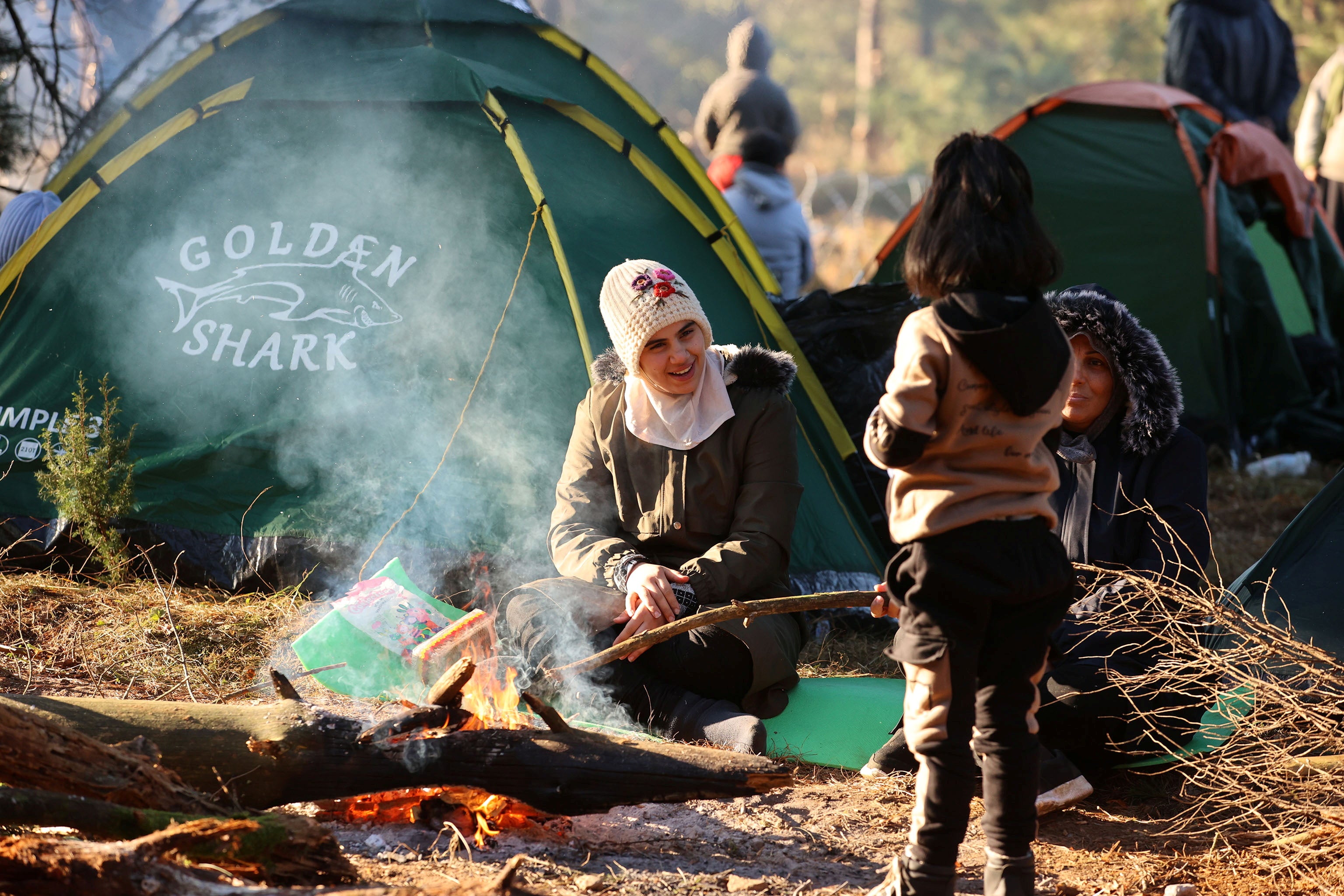Poland warns of ‘armed’ escalation as Belarus migrant crisis deepens
As many as 4,000 migrants are now at the border say Polish officials
Your support helps us to tell the story
From reproductive rights to climate change to Big Tech, The Independent is on the ground when the story is developing. Whether it's investigating the financials of Elon Musk's pro-Trump PAC or producing our latest documentary, 'The A Word', which shines a light on the American women fighting for reproductive rights, we know how important it is to parse out the facts from the messaging.
At such a critical moment in US history, we need reporters on the ground. Your donation allows us to keep sending journalists to speak to both sides of the story.
The Independent is trusted by Americans across the entire political spectrum. And unlike many other quality news outlets, we choose not to lock Americans out of our reporting and analysis with paywalls. We believe quality journalism should be available to everyone, paid for by those who can afford it.
Your support makes all the difference.Poland has warned that the growing migrant crisis on its border could end in a miliary confrontation as thousands of migrants camped out on the Polish-Belarus border overnight, surrounded by armed guards, water cannons and barbed wire.
The sub-zero temperatures, and occasional warning fire of Belarusian forces, heightened awareness of the precariousness of their situation. Their fates are now entangled in a harsh and unpredictable game of high politics.
By Tuesday morning, Polish authorities were warning that the migrants’ attempt to illegally enter Poland could end in armed violence.
Government spokesman Piotr Muller said that as many as 4,000 migrants were now estimated to have gathered at the eastern border in camps near Kuznica. The European Union said about 2,000 migrants were trying to enter Poland from Belarus.
Warsaw expected an "escalation... of an armed nature," Muller said.
Poland’s army is on high alert, with 12,000 troops and anti-terror squads mobilised in border areas.
To the north, fellow EU member Lithuania on Tuesday also announced an incoming state of emergency. It explained the move as a protection against what it described as an act of hybrid warfare from Belarus.
Local media reported large numbers of cars loaded to capacity travelling towards Lithuania. Social media footage from Minsk also showed groups gathering ahead of what could be a journey to the same border.
Europe contends Minsk is deliberately creating a migrant emergency on its eastern border in retaliation for sanctions.

The European Commission said on Tuesday Belarus was taking a "gangster-style" approach to the issue by illegally offering migrants easy entrance into the Eu via its territory. It said more sanctions against Minsk were on the way.
Thousands have travelled to Belarus from the Middle East and Africa in hope of achieving safe passage to a new life in Europe. They began arriving in May, when the country’s contested leader Alexander Lukashenko declared he was no longer in a position to control migrant flows to Europe.
Local reports suggest Belarusian state tourism companies make money out of organising the migrants’ travel, visas, and transfers to the border.
Alyona Chakhovich, a human rights activist in Minsk, says few of those who made the trip to Belarus understood the dangers they would face. “They are promised money and an easy passage to Europe,” she said. Now they don’t see a way back: “It’s either too dangerous back home or they think that they’ve spent too much money to give up.”
Chakhovich says the migrants she has met come in all kinds: women, families, young children, single men. Thousands of them are sleeping rough as they wait for their chance to cross into Europe. A lucky few make it across the border into the hands of smugglers. Many do not – turned back for the pleasure of Belarusian border guards. At least ten are reported dead.
The activist criticised the positions of Poland, Lithuania and Latvia in refusing to consider asylum applications once migrants made it to their border. They were in breach of their International obligations like Belarus, she argued.
Artyom Shraibman, a political analyst now based in exile in Kiev, says Mr Lukashenko believes the migrant emergency is a way of creating leverage for negotiations with Europe. It’s also convenient “revenge” for support of sanctions and the opposition. Poland, Lithuania and Latvia offered the harshest criticism of Mr Lukashenko’s actions over the last year, the expert says: “He wants them to suffer.”
Yet with winter closing in, the lion’s share of suffering looks to be falling on the shoulders of vulnerable migrants. According to Polish and Lithuanian authorities, at least 10,000 remain in Belarus. Most have nowhere to go.
“They could die if they attempt to to cross the border, but they could die from the cold if they stay for the Belarusian winter,” says Shraibman. “This has the makings of a major humanitarian crisis.”
Subscribe to Independent Premium to bookmark this article
Want to bookmark your favourite articles and stories to read or reference later? Start your Independent Premium subscription today.




Join our commenting forum
Join thought-provoking conversations, follow other Independent readers and see their replies
Comments